Baron Ravensworth, of Ravensworth Castle in the County Palatine of Durham and of Eslington Park in the County of Northumberland, is a title in the Peerage of the United Kingdom.

Hugh Percy, 1st Duke of Northumberland, was an English peer, politician, and landowner.

The Errington Baronetcy, of Ness in the County Palatine of Chester, was created in the Baronetage of the United Kingdom on 26 June 1963 for Sir Eric Errington, 1st Baronet.

The Gladstone Baronetcy, of Fasque and Balfour in the County of Kincardine, is a title in the Baronetage of the United Kingdom. It was created on 18 July 1846 for the Scottish businessman slave-owner and politician John Gladstone, father of four-time prime minister William Ewart Gladstone. Born John Gladstones, the son of the merchant Thomas Gladstones, John assumed by royal licence the surname of Gladstone in 1835. The name Gladstone is geographical, deriving from a farmstead near Biggar in Lanarkshire; it comes from the Old English for "kestrel stone".

The Ashurst Baronetcy, of Waterstock in the County of Oxford, was a title in the Baronetage of England. It was created on 21 July 1688 for Henry Ashurst, Member of Parliament for Truro and Wilton. The second Baronet represented Windsor in Parliament. The title became extinct on his death in 1732.

Sir William Blackett, 2nd Baronet of Newcastle-upon-Tyne, of Pilgrim Street, Newcastle-upon-Tyne and Wallington Hall, Northumberland, was a British landowner and Tory politician who sat in the House of Commons from 1710 to 1728.
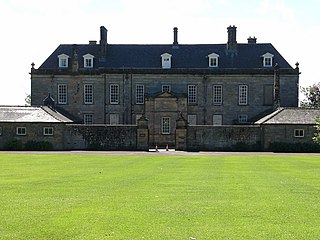
Sir Walter Calverley Blackett, 2nd Baronet was a British baronet and politician who sat in the House of Commons from 1734 to 1777.

Sir Charles Miles Lambert Monck, 6th Baronet was an English politician. He succeeded to the Baronetcy of Belsay Castle on the death of his father in 1795.
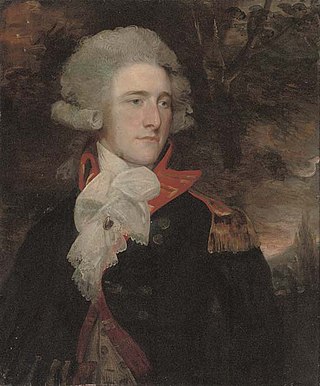
Thomas Henry Liddell, 1st Baron Ravensworth, known as Sir Thomas Liddell, 6th Baronet, from 1791 to 1821, was a British peer and Tory politician.
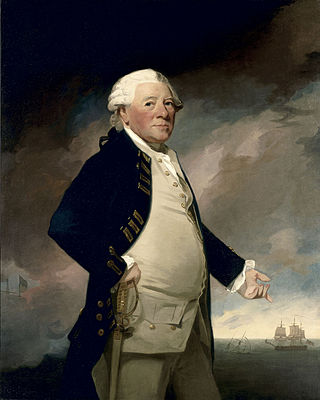
There have been seven baronetcies created for persons with the surname Parker, three in the Baronetage of England, two in the Baronetage of Great Britain and two in the Baronetage of the United Kingdom. Two of the creations are extant as of 2008. Though none of the different families of baronets were related, several supplied a number of flag officers to the Royal Navy.
There have been two baronetcies created for persons with the surname Ewart, both in the Baronetage of the United Kingdom. One creation is extant as of 2010.
There have been six Forster Baronetcies, four in the Baronetage of England, one in the Baronetage of Ireland and one in the Baronetage of the United Kingdom. All are extinct.
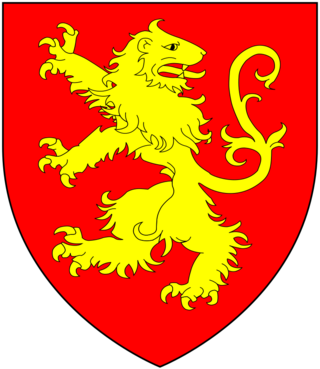
Sir William Morice, 3rd Baronet of Werrington Park was an English Tory politician who sat in the House of Commons from 1727 to 1750.
There have been two baronetcies created for persons with the surname Prescott, one in the Baronetage of Great Britain and one in the Baronetage of the United Kingdom.
The Firebrace Baronetcy, of London, was a title in the Baronetage of England. It was created on 28 July 1698 for Basil Firebrace, Member of Parliament for Chippenham from 1690 to 1692. He was the son of Sir Henry Firebrace. The third Baronet sat as Member of Parliament for Suffolk. The title became extinct on his death in 1759.
Sir Horace David Cholwell St Paul, 1st Baronet was an English soldier and Member of Parliament.
Henry Heneage St Paul was an English officer in the British Army and a politician.
Sir William Middleton, 3rd Baronet of Belsay Castle, Bolam, Northumberland, was a British landowner and Whig politician who sat in the House of Commons for 35 years from 1722 to 1757.
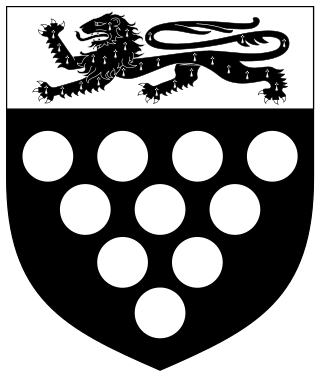
The Bridgeman baronetcy, of Ridley in the County of Chester, was created on 12 November 1673 for Orlando Bridgeman, Member of Parliament for Horsham and younger son of the 1st Baronet, of the Great Lever creation. He was succeeded by his son, the 2nd Baronet. The latter was Member of Parliament for Calne, Lostwithiel, Blechingley and Dunwich.
Sir Horace St Paul, 2nd Baronet was a British landowner and politician, who represented East Worcestershire in Parliament between 1837 and 1841.











